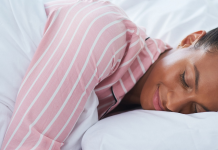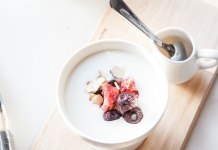World Sleep Day (celebrated 17 March) is an annual event hosted by The World Sleep Society since 2008. The day is intended to be a celebration of sleep and a call to action on important issues related to sleep, including medicine, education, social aspects, and driving.
It is organised by the World Sleep Society (based in the USA) and a global awareness day with a series of events that aim to lessen the burden of sleep problems in society through better prevention and management of sleep disorders. Sleep is a behaviour that is foundational to our physical, mental, emotional, and social well-being.
- World Sleep Day has drawn attention from media and celebrities around the globe.
- More than 88 countries around the world have participated in World Sleep Day.
- The hashtag #WorldSleepDay has been a trending topic on Twitter for the past three years running.
Given the state of our South African economy, with the country now grey listed, the problems at Eskom, high interest rates and general turbulence … there is not a person who is not stressed and overwhelmed, and battling to sleep! This from corporate CEOs to one-person shoe repair businesses!
The vicious circle is unmanaged stress. It leads to people eating badly and/or drinking excessively, skipping exercise, and then sleeping badly.
Hence the executive coach and strategic facilitator of Resilient People Joni Peddie has chosen to take the 2023 theme: ‘Sleep is Essential for Health’ and make it fun, relevant and practical for everyday habit change: More sleep, Less Stress AND you can lose weight!
A few fun facts:
- Sleep has a major impact on our health and quality of life. We need between seven and nine hours of good sleep every night in order for our body and brain to rest.
- It’s not all about quantity, it is also about quality, in other words, restorative sleep. This kind of deep, refreshing sleep is the single-most effective thing you can do for your overall health: Your body and brain health.
- Good-quality sleep helps you think clearly and objectively, and make good daily decisions.
- Humans are emotional beings and we often forget that ‘emotions are contagious’. Good sleep helps you understand, manage and navigate your emotions.
- Less than seven hours a night, and our ability to concentrate may suffer, our immune system may weaken, and we end up eating more food – and often more unhealthy food – than we need to.
- Getting too little sleep alters the balance of our hormones. This can also lead us to eat more food and gain weight. That’s why getting enough sleep can help you to resist that extra portion of tempting food.
- One scientific study has shown that short-sleepers – people who sleep less than seven hours a day – tend to eat MORE, about 1 255 kJ (300 calories) more every day, than people who get enough sleep. This is because they are drawn to foods with higher levels of saturated fat, like fast food, cheese and processed meats. Over a long period of time this daily increase is enough to raise the risk of obesity.
A good night’s sleep starts when you wake up… Here are some rituals to help you through the day:
On waking, replace tea, coffee or green tea with water or herbal tea: Your brain flushes out toxins while you sleep, and dehydrates to some extent… So it needs water (or herbal tea) to rehydrate. Aim to have your first cup of tea or coffee only two to three hours after waking.
View sunlight within the first 30-60 minutes after waking: Natural light has the most potent influence on your brain, much stronger than indoor lighting. First prize would be to go for an early walk. This will kick-start your body clock (circadian rhythm) for the day.
Elevate your heart rate for a minimum of 20 mins every day: Do whatever takes your fancy! If you don’t like exercise, reframe this in your mind as ‘movement’. Try squats, jumping jacks, plank… anything that raises your heart rate. Remember that 20 minutes can be split up into 4 x 5 minute segments during the day.
Avoid caffeine after lunch: Caffeine stays in your system for about eight hours. If you are going to bed at 10pm, then no tea, coffee or green tea after 2pm! Caffeine prevents you getting the deep (stage 4) sleep – the stage of sleep that your body and brain need for all the detoxing efforts.
Eat a balanced diet: You need to eat a balanced diet of fruits, vegetables and lean meat. Vitamins and nutrients enable the body to function properly.
The power of a powernap: Powernaps should be 20 minutes or 90 minutes. During the week, a 20-minute powernap is tremendously beneficial, especially after a stressful meeting, but don’t nap too late in the afternoon.
What can you do at the end of the day? Here are some tips to help you into the evening:
If possible, watch the sunset: The red light at sunset is another signal to your brain to stop producing cortisol (the stress hormone) and start producing melatonin, which kick-starts sleep.
Have a digital detox for 60-90 minutes before bedtime: Electronics emit blue light that can throw off the body’s system for inducing sleep. So, if your mobile is on your bedside, put it on flight mode.
Eat dinner early: It is best to avoid having a heavy meal within two to three hours of bedtime.
Don’t drink too much alcohol: Although alcohol can make you sleepy, it disrupts your sleep cycle. Limit your alcohol to one or two small glasses and avoid it an hour before bed.
No to nicotine: Hopefully you’re not smoking! But if you do have a nicotine habit, remember it is also a stimulant and smoking near bedtime has been associated with more difficulty falling asleep, unwanted awakenings and reduced amounts of restorative sleep.
Have a full stop at the end of your day: Allow your brain enough time to simmer down from the mentally demanding activities of the day.
Create a sleep-friendly bedroom: Your bedroom should be cool and dark (about 16°-18° Celsius).
Your bedroom should only be used for three things: Your bedroom should only be used for sleeping, intimacy and reading!
Have a fixed pre-bed routine: Writing in a journal can help you dump’ issues down on paper, and can be very cathartic. It helps you distinguish between what you can control and what you can’t control in your life. Remember to ‘budget’ for enough sleep… this may mean that you need to set your phone’s alarm for 30 minutes before you want to go to sleep to ensure you get to sleep at the ‘kinda time’ you to.
If you battle to fall asleep, try the 4-7-8 breathing technique: Breathe in for 4 counts (through your nose) Hold your breath for 7 counts. Breathe out slowly for 8 counts (using your mouth).
Sleep trackers: Headspace | Calm | BrainTap | Reveri. There are a number of good ones, but be careful of becoming obsessed with ‘tracking’; this may cause more anxiety and prevent you from falling or staying asleep.
Establish a good sleep routine/schedule: Get into a rhythm… try and keep this as consistent as possible for seven days a week. For example: 10pm to 6am. On the weekends it may differ slightly, but hopefully by only an hour or so. Remember that you need a min seven hours every night for your brain to ‘reboot’. Your brain doesn’t sleep: in fact, it is hard at work at night, flushing out toxins and boosting your immune system, metabolism etc.
If you wake up in the middle of the night…
Instead of tossing and turning, get out of bed and go to the lounge. Don’t watch TV. Keep the lights low. Have a glass of water or herbal tea, get comfy on the couch and read a book. When you are drowsy, go back to bed. This is far better than getting frustrated or angry lying in bed, which will cause your cortisol levels to rise, making it very difficult to get back to sleep. Also, try not to check the time. If you have a bedside clock, turn it around so that you can’t see it. Clock-watching can exacerbate anxiety, making it really difficult to doze off.






